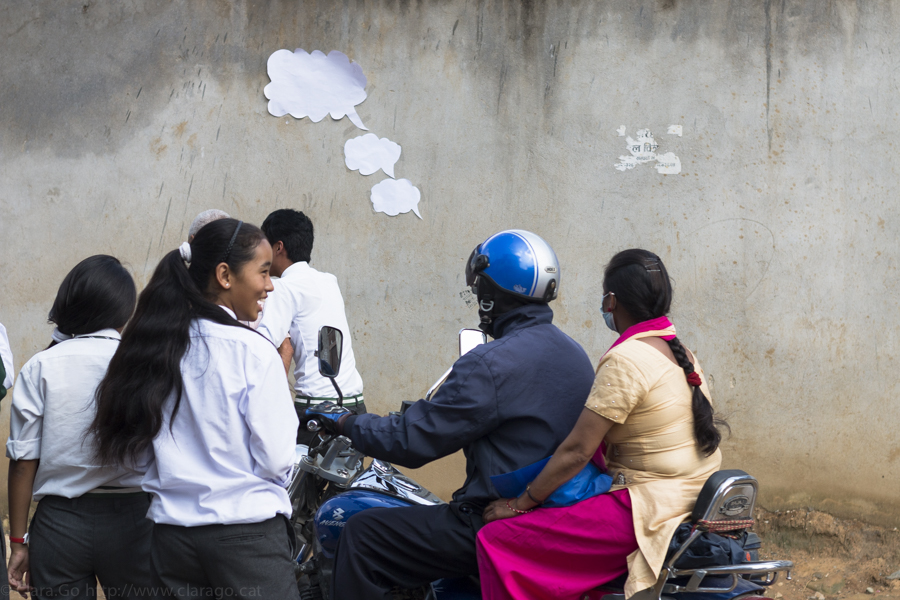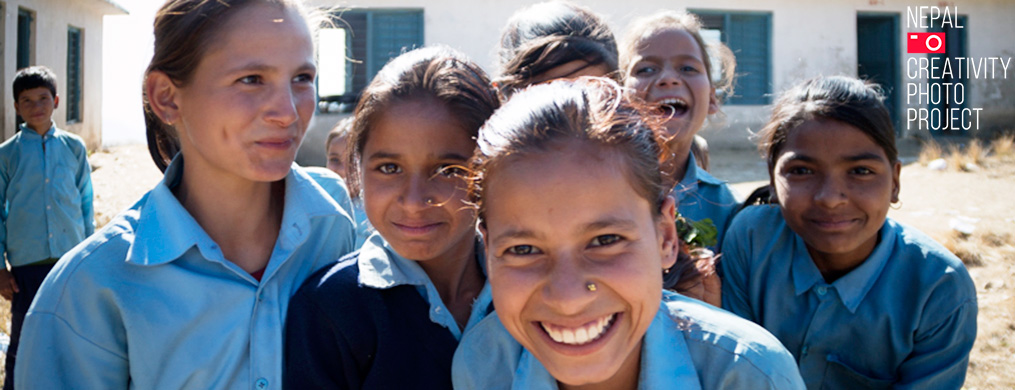Break the silence, cry out.
No toilets, no bins, hardly any water
Imagine dealing with your period in a place with no or limited toilet facilities, no rubbish collection, and limited water. Where funds are limited – especially for women and girls. It’s one more issue to deal with and it appears to be seriously underestimated. It often means missing school, humiliation, and sexual exploitation.
And in Nepal: Chhaupadi.
Chhau means menstruation and padi means a woman. If you don’t know what Chhaupadi is, you can take a look here:
Our next project in Nepal (ab February/March 2017) will be an educational program in Far West/Mid West Nepal and anywhere women need it.
We will try to help (also with participatory photography workshops), bringing menstrual and hygienic educational information and working together with local nurses. We will also team up with local women to develop a long term project, to have Menstrual cup (really cheap or free) available in the country.
The Main Idea: try to decrease Chhaupadi.
Development Priority
The UNDP states menstrual hygiene is “A Neglected Condition for the achievement of Several Millennium Development Goals”. Poor menstrual hygiene is unequivocally linked to educational, employment, health, and overall developmental outcomes (see a report Here). It’s a problem in terms of safety, health, finances, and also economic and educational participation. Some programs are working to overcome these barriers by making safe, economical, and functional products like menstrual cups available.
There are a lot of studies and analysis about Chhaupadi in Nepal, such as:
The only way to abolish this practice is through mass awareness and education at a community level.
This is the topic we intend to focus on, contributing with a participatory photography Project which will allow Girls an Women to capture and reflect the capabilities and problems of their community (through participatory needs assessment).
The workshops will be held by local women and young girls from every community, with the help of two local Nurses and some volunteers who wil give detailed instructions to participants on the use of the menstrual cup and on the menstrual and hygienic educational part of the program.
The final Photo Exhibition will take place in the middle of the village involving the whole community. We will try to do a major exhibition in Kathmandu to sell the work. The profits will revert back to the girls.
Besides workshops and in order to achieve a long-term impact, there will be an in-school nurse visiting approximately once per month, when the girls will be asked about their experiences with the menstrual cup and their questions or needs.
If you ask yourself if that will be good for Nepali women, lets us take a look at previous evaluation programs in Nepal:
MIT Poverty Action Lab Programs
The Massachusetts Institute of Technology Poverty Action Lab have been supplying the MoonCup brand in India and Nepal as part of evaluation programs.
According to reports (“No Menstrual Hygiene For Indian Women Holds Economy Back” – Bloomberg July 25th 2013), parts of India lack adequate plumbing, let alone sanitary disposal units. Around 88% of women in India’s poorer regions “make do with little more than scraps of old cloth”, and “sneak out at night to bury soiled rags in the dirt”.
Women who have been supplied with cups report feeling greater freedom and mobility. One woman said the cup “improved her life and stoked envy from other women”. In Nepal, women and girls said “they were able to bicycle, and that they even forgot they were having their period”. Results from Nepal suggest that the cups can overcome significant barriers, even if they don’t solve bigger problems.
Sustainability
We will have three broad aims for the project: making voices heard, encouraging self-development, and providing the means to generate income.
1) We will train local organizations to support the participants on a daily basis.
2) Within the workshops, after teaching them how to use the cameras, they work on confidence — the women will learn how to caption their photos effectively, and also built up self-confidence so they believe they could have a powerful impact.
3) Finally, We will have two sets of workshops spaced five/six months apart, so when we come back for the second time, we can address any longer term issues that develop, and see what still needed to be changed.

We will work in Western Nepal, in some VDC (Village Development Committees) in Mahakali Zone, some of the most remote areas from Seti Zone and in Karnali Zone
Karnali Zone map, Seti Zone map, Makahali Zone Map
In the Pilot phase we are going to Kalikot and achcham.
Help to finance the project! At the moment you can:
– You can go to exhibitions to buy photographs or go to charity workshops to help to collect money for the project. More info: https://www.facebook.com/beartsyNGO/events/
– You can buy at the online store: http://shop.creativityphotoproject.com/
– You can volunteer to work online as a translator or helping on the web (wordpress): https://goo.gl/forms/SGFFrURuAeo6Dg5D3
– You can help the chhaupadi project with donating with Paypal to buy menstrual cups and sanitary materials for Nepal: https://www.paypal.me/ClaraGo


